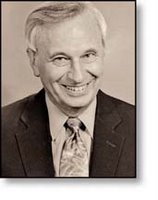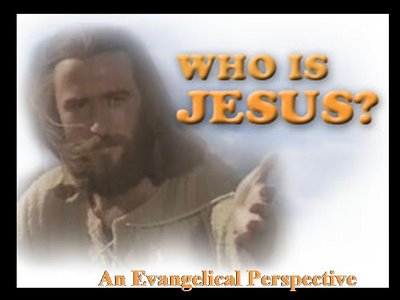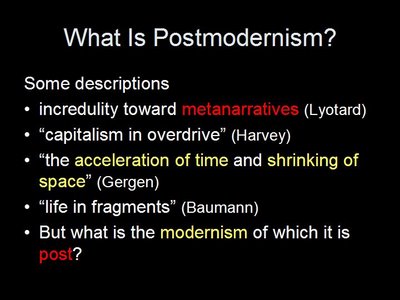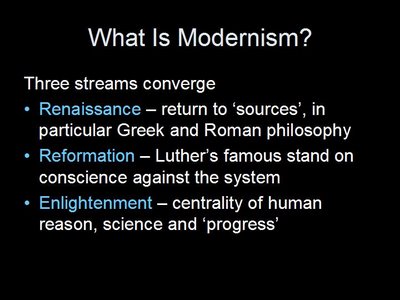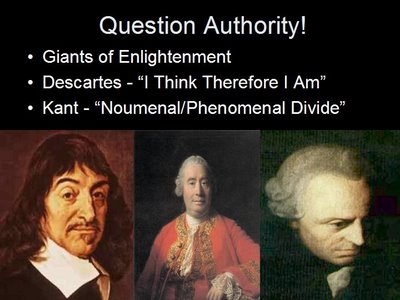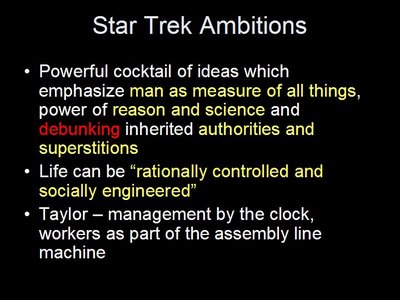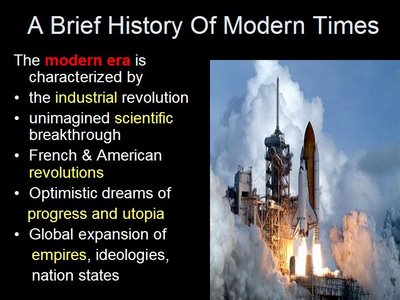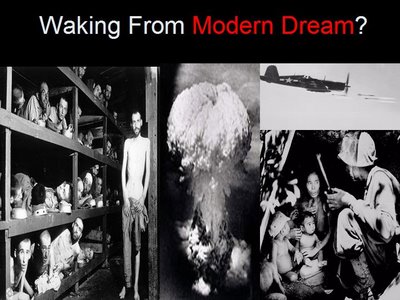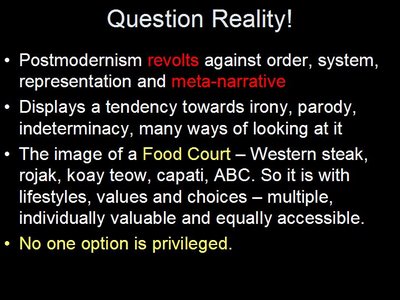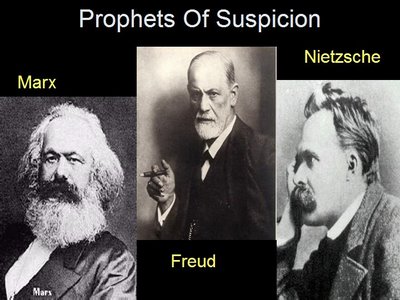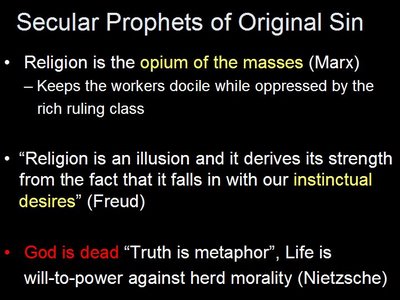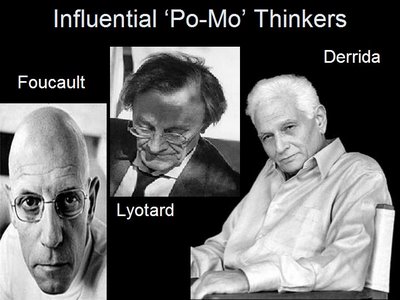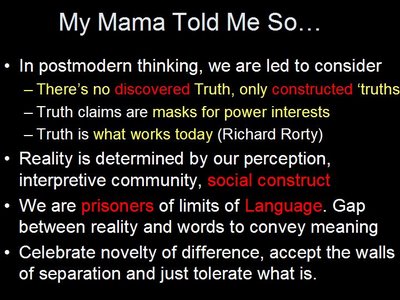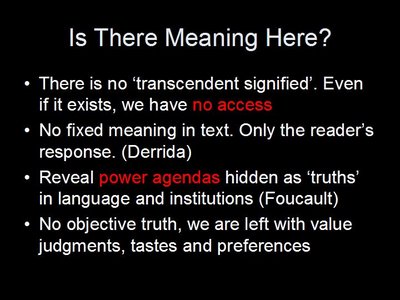Sifting the Epistles of the Apostle
Before discussing key passages in Paul’s epistles which would have decisive bearing in the debate, we are confronted with what Kasemann called the central concept of Pauline theology - ‘the righteousness of God’ (dikaiosune theou). According to Old Testament scholars like Gerhard von Rad, it meant God’s ‘covenantal faithfulness’ to fulfill His saving promises to Israel. It seems like a necessary correction to the view of righteousness understood as conformity to an ethical norm . [27] However, the grid of ‘covenantal faithfulness’, on which the weight of Wright’s thesis rests, is too narrow to support the datum in Old Testament where God’s righteousness is also demonstrated specifically in fulfilling His punitive, non-saving promises to Israel . [28] Therefore, Mark Siefrid’s caution that the words ‘righteousness’ and ‘covenant’ are rarely used in the same context in Old Testament should be considered more seriously. [29]
 John Piper offered a more plausible alternative after surveying Old Testament texts like Psalm 143 and Daniel 9: “While God’s allegiance to the covenant is a real manifestation of God’s righteousness, nevertheless the most fundamental characteristic of God’s righteousness is His allegiance to His own name… His commitment to Israel is penultimate. His commitment to maintaining the glory and honor of His name is ultimate. ” [30] It is because God’s glory should be revealed before a watching world that both His punitive justice and saving faithfulness are manifested. In Isaiah’s prediction of God’s eschatological saving acts closely related to His righteousness, the ground for Israel’s salvation is God’s passion for His own glory:
John Piper offered a more plausible alternative after surveying Old Testament texts like Psalm 143 and Daniel 9: “While God’s allegiance to the covenant is a real manifestation of God’s righteousness, nevertheless the most fundamental characteristic of God’s righteousness is His allegiance to His own name… His commitment to Israel is penultimate. His commitment to maintaining the glory and honor of His name is ultimate. ” [30] It is because God’s glory should be revealed before a watching world that both His punitive justice and saving faithfulness are manifested. In Isaiah’s prediction of God’s eschatological saving acts closely related to His righteousness, the ground for Israel’s salvation is God’s passion for His own glory:
“For the sake of my name I delay my wrath and for my praise I restrain it for you, in order not to cut you off… For my own sake, for my own sake I will act, for how can (my name) be profaned? And my glory I will not give to another”. (Isaiah 48:9-11)
If the righteousness of God refers to neither distributive justice nor covenantal faithfulness but to God’s commitment to the glory of His name, how shall we exegete ? [31]
Commenting on the epistle to Galatia, Wright pointed out that the issue in Antioch was not how one may be saved, but who one is allowed to eat with? Can Gentile Christians share full table-fellowship or do they need to be marked out by circumcision as part of the covenant community? However, this proposal failed to account for Paul’s own assessment of the situation in Galatians 1:6-9. His indictment of his opponents (to the point of throwing eternal anathema) lies in their perversion of the gospel of Christ itself. The inconsistency of Jewish Christians separating themselves from Gentile believers is symptomatic of a more serious lapse in the nature of Paul’s gospel (Galatians 2:14). If the gospel is a royal announcement of Jesus as Lord, not justification by faith, why would Paul charge them of preaching another gospel that nullifies Christ’s death ? (Gal 2:21) [32]
A compelling case for viewing justification by faith as a ‘covenant-entry’ issue can be made by taking seriously the link between Abraham’s blessing and the promise of the Spirit (Galatians 3:14). Christ redeemed us that the blessing given to Abraham would be realized in that the nations would receive the promise of the Spirit by faith in Christ. Being declared as righteous through faith, apart from the law, (Gal 3:6) is the basis for receiving the Spirit and not least, covenant-entry into Abraham’s family (Gal 3:2, 6-7) . [33] Contra Wright, Paul’s discourse in Galatians does not merely indulge in peripheral bickering on how one is defined as a member of Abraham’s covenant community. Justification of the Gentiles by faith is nothing less than the ‘gospel’ announced in advance to Abraham so that the nations would now enter into his covenant blessings.
 In response to scholars who envision justification sola fide as later ecclesiological issue, Seyoon Kim pointed out that Paul himself interpreted the Christophany as the pleasure of God “to reveal his Son in me” (the gospel) “so that I might preach Him among the Gentiles” (the commission) . [34] If Paul developed justification by faith much later during the Antioch controversies about the place of Gentiles, as Dunn suggests , [35] then the polemical context in Galatians 1 and 2 would make little sense. Here, Paul defended his law-free gospel, apostleship and the Gentile mission as having an inseparable and divine origin in the Christophany. If he came to realize justification sola fide apart from the law only much later, the argument would inevitably fall apart . [36] Luke’s account would concur that the commission Paul received from Christ to both Jews and Gentiles (Romans 1:16) is primarily salvific - “to open their eyes from darkness to light, from the power of Satan to God so that they may receive forgiveness of sins ” (Acts 22:16-18). [37]
In response to scholars who envision justification sola fide as later ecclesiological issue, Seyoon Kim pointed out that Paul himself interpreted the Christophany as the pleasure of God “to reveal his Son in me” (the gospel) “so that I might preach Him among the Gentiles” (the commission) . [34] If Paul developed justification by faith much later during the Antioch controversies about the place of Gentiles, as Dunn suggests , [35] then the polemical context in Galatians 1 and 2 would make little sense. Here, Paul defended his law-free gospel, apostleship and the Gentile mission as having an inseparable and divine origin in the Christophany. If he came to realize justification sola fide apart from the law only much later, the argument would inevitably fall apart . [36] Luke’s account would concur that the commission Paul received from Christ to both Jews and Gentiles (Romans 1:16) is primarily salvific - “to open their eyes from darkness to light, from the power of Satan to God so that they may receive forgiveness of sins ” (Acts 22:16-18). [37]
Regarding the crucial passage of Romans 3:21-31, Wright argued that God had demonstrated His covenant faithfulness when He dealt with sin in the cross and resurrection so that covenant membership is now available to both Jews and Gentiles. The boasting of Romans 3:27 is the racial boast of the Jew to Gentiles, not that of the successful moralist to God. Otherwise, it does not logically follow that Paul should retort, “Or is God the God of the Jews only? Is He not of Gentiles also? ” [38] In the covenantal context, justification means that believers are declared or defined, in the present, to be true covenant members on the basis of faith, not by circumcision or natural descent.
However, the force of Wright’s argument is blunted significantly if we take note of Paul’s ad absurdum strategy in Romans 3:29. His opponents did not historically hold the view that Yahweh is a provincial deity of the Jews only. Rather, Paul is carrying his opponents’ position to its undesirable logical conclusions. Simon Gathercole pointed out that if obedience to the Torah were God’s appointed means to justification, then He would have no concern for Gentiles who did not have access to Torah . [39] Therefore it is more likely that the boasting refers to the confidence that God would vindicate Israel before the Gentiles by virtue of Israel’s election and obedience to Torah . [40] It does not necessarily imply self-righteousness, only that Paul’s contemporaries wrongly assumed that they had fulfilled the requirements of Torah. Theirs was a failure not merely to include Gentiles in the covenant, but also a failure to know God in a salvific sense, which Paul agonized over in Romans 9. There is no distinction between those who have Torah and those who don’t because all have sinned and failed to reflect the glory of God (Romans 3:23). In Romans 1, Paul indicted mankind as having knowledge of God but failed to glorify Him as God and exchanged His glory for images of the created. The centrality of God’s glory in Christ is carried over in Romans 3:21 – 31 where God’s righteousness required vindication or demonstration because of the proposal that God had left sins committed beforehand unpunished and justified sinners freely (verse 26) . [41] In contrast, to avoid playing off justice with mercy, Wright’s interpretation exhibited no such tension evident in the text. Rather, justification of God’s community is only expected of His covenantal faithfulness. The passing over of sins committed by those who dishonored God’s glory threw a long shadow over God’s “righteousness” precisely because God’s commitment to the honor of His name is at stake. Therefore the cross as a sacrifice of atonement or propitiation for sins (verse 25) was utterly crucial in order to demonstrate that God’s honor was upheld even as He justified those who believe.

With a covenantal grid, Wright also interpreted Philippians 3:2-11 as Paul’s refusal to grasp racial covenant membership, though possessing it according to the flesh, by virtue of his birth, marked out by circumcision and being a zealous Pharisee. “Faith is the badge of covenant membership, not something someone performs as a kind of initiation test .” [42] However, it is improper to suppose that ‘gaining Christ’ is not an initiatory phase in covenant membership. To “gain Christ” and be “found in Him” (verse 9) is to assume the same positional status as “having righteousness that comes from God” through faith in Christ. The latter is not a mere marker of which the former is reality. That which Paul rejected as “loss” and “refuse” was hardly membership indicators, but the confidence in “the works of the law as the basis for man’s righteousness before God” . [43] His apparent “profit” in the past (verse 7) was antithetical “gaining Christ”. To be sure, the attempt to gain righteousness of our own works and merits was not antithetical to inclusive community boundary, but the salvific, all-surpassing greatness of knowing Christ. Paul gave a similar assessment in Romans 9:31, “But Israel, although following after the law of righteousness, did not arrive at that law. Why not? Because it did not start from faith, but from supposed works.” While Wright is correct to point out that the text is not explicit about a “righteousness of God,” we should not see a false dichotomy here as the “righteousness from God” (alien righteousness which Paul received, not his own) does not preclude that possibility . [44]
After a sampling of crucial Pauline texts on justification by faith, I find that while the Reformation view may require refinement and clarification in light of the New Perspective challenge, its key features emerge from exegesis, not eisegesis. Instead of being a mere boundary marker, Paul viewed justification by faith as the only means of salvation from the wrath of God: “Since we have now been justified by His blood, how much more shall we be saved from God’s wrath through Him” (Romans 5:9).
Conclusion
In summary, there are crucial insights to be gleaned from the New Perspective. Sanders put us all in his debt by refuting a simplistic portrait of Judaism and Dunn brought to our attention much-neglected sociological aspects of Pauline theology. N.T. Wright’s ongoing project on the centrality of the Kingship of Christ in the gospel poses a much needed correction to the popular concept of Christianity as an individualistic, otherworldly religious experience. I have come away breathless and challenged by the clarity and incisive insights with which Wright unpacked Paul’s proclamation as a rhetoric against pagan worldviews and political oppression.

However, if we are to understand the Pauline doctrine of justification by faith, we would do well to heed Westerholm’s call to return and read exegetical masters like Luther once again. The great ecumenical article of faith that once held together orthodox, pre-schism traditions in the East and West needs to be rediscovered, not abandoned, if genuine unity in the gospel is to be achieved . [45] I expect to see the Church’s historic understanding of justification by faith would be significantly refined, but vindicated, in the process of the ongoing debate for the glory of God and the good of His people. The practical pay-off should therefore be nothing less than a renewed zeal and urgency to a missionary enterprise that truly transcends racial and cultural boundaries.
Footnotes:
[1] For Schweitzer, only two views were credible contenders for the center of Pauline theology. He argued that “Christ-mysticism” understood in the context of apocalyptic Judaism is the center of which “justification by faith” is but a peripheral apologetic for the inclusion of Gentiles into the church.
[2] In keeping with sound hermeneutical principles, presupposition and socio-historical contextual analysis methodologically precedes exegesis of the text. I have chosen to interact with Stendahl and Sanders because of their ground-breaking contribution in the respective areas. As for Wright, his exegesis on justification seems most persuasive, refreshing and influential among New Perspective scholars I’ve read.
[3] F. Thielman, A Contextual Approach: Paul and the Law, (Illinois: InterVarsity, 1994) pages 14-27.
[4] The article was first published in English in Harvard Theological Review in 1963.
[5] N.T. Wright, What Saint Paul Really Said: Was Paul of Tarsus the real founder of Christianity? (Oxford: Lion, 1997), page 113
[6] J. Sanders, Paul and Palestinian Judaism: A Comparison of Patterns of Religion, (London: SCM Press, 1977), page 420
[7] For example, Sanders noted that Rabbinic Judaism is not primarily other-worldly. “What must I do to be saved?” is not a prominent query for them.
[8] J. Sanders, Paul and Palestinian Judaism, page 75.
[9] Building on Sanders theory, Raisanen’s Paul and the Law went even further to argue that Paul had no consistent theology of the Law at all. For an evaluation, see J. Barclay, Paul and the law: Observations on some recent debates, Themelios, vol.12, September 1986, pages 9 -11
[10] F. Thielman, A Contextual Approach: Paul and the Law, pages 35 – 37.
[11] N.T. Wright, What Did Saint Paul really said: Was Paul of Tarsus the real founder of Christianity?, page 132
[12] J. D. G. Dunn, ‘A Light to the Gentiles’ or ‘The End of the Law?’ The Significance of the Damascus Road Christophany for Paul’ in the monograph Jesus, Paul and the Law: Studies in Mark and Galatians, (Louisville: Westminster/John Knox, 1990), pages 98 – 99. Quoted in S. Kim, Paul and the New Perspective: Second Thoughts on the Origin of Paul’s Gospel, (Grand Rapids: Eerdmans, 2002), page 22
[13] See Isaiah 40 – 55, Daniel 9 and Psalm 143 for the biblical warrant.
[14] N.T. Wright, What Did Saint Paul really said: Was Paul of Tarsus the real founder of Christianity?, page 96
[15] Ibid., page 98
[16] Ibid., page 119
[17] S. Kim, The Origin of Paul’s Gospel, (Grand Rapids: Eerdmans, 1981), page 53. Kim cited the Thanksgiving Hymns of Qumran as suggesting the possibility for rigorous Jews to sometimes doubt their ability to keep the law perfectly.
[18] C. Kruse, Paul, the Law and Justification, (Leicester: Apollos, 1996), page 83.
[19] Frank Thielman, From Plight to Solution: A Jewish Framework for Understanding Paul’s View of the Law in Galatians and Romans (Leiden: Brill, 1989) page 45. Quote was from Kruse, op. cit., page 45.
[20] Kirster Stendahl, for example, is actively involved in ecumenical dialogue with Jewish scholars via the International Council of Christians and Jews. The perceived advantage of improving post-Holocaust Jewish-Christian relation may be done at the expense of silencing Paul’s exclusivistic gospel. Is it possible that in an ironic twist, the guilty conscience of post-Holocaust Europe has now been read into the text?
[21] Luther wrote, “Nothing in this article can be given up or compromised, even if heaven and earth… should be destroyed.” Quoted in Timothy George, Theology of the Reformers, (Nashville: Broadman & Holman Pub.,1998), page 62
[22] Grant Osborne, The Hermeneutical Spiral: A Comprehensive Introduction to Biblical Interpretation, (Illinois: InterVarsity, 1991), page 412
[23] In Summary and Conclusions, Don Carson wrote that “Sanders is not wrong everywhere… he is wrong when he tries to establish his category is right everywhere”.
[24] T. Shreiner, The Law & Its Fulfillment: A Pauline Theology of Law, (Grand Rapids: Baker Books, 1993) pages 114 – 117.
[25] Mark A. Siefrid, The ‘New Perspective on Paul’ and Its Problems, essay drawn from Christ, Our Righteousness, published by Appolos, UK.
[26] P. F. M. Zahl, Mistakes of the New Perspective, Themelios Vol 27:1, page 7
[27] C. Hodge, Romans, (Pennsylvania: Banner of Truth, 1989), page 95. Commenting on this term in Romans 3:25-26, Hodge wrote: ‘Justice is the attribute with which the remission, or passing by, of sins without punishment, seemed to be in conflict.’ But God’s righteousness can be displayed in showing mercy as shown in Psalm 143.
[28] David Hill cited Lamentations 1:18 and Isaiah 10:22 in support for his thesis that “within the action of divine righteousness, there is a place for deliverance and condemnation, a place for salvation and for punishment”. D. Hill, Greek Words and Hebrew Meanings: Studies in the Semantics of Soteriological Terms, (Cambridge 1997), page 90
[29] M. Siefrid, The ‘New Perspective on Paul’ and Its Problems, Themelios 25.2 (2000)
[30] J. Piper, The Justification of God: An Exegetical & Theological Study of Romans 9:1-23, (Grand Rapids: Baker, 1993), page 112. See also God’s Passion for His Glory (Leicester: Inter-Varsity Press, 1998).
[31] The implications of Piper’s thesis are more fully developed in Tom Shreiner’s “Paul, Apostle of God’s Glory in Christ.”
[32] N.T. Wright, What did Saint Paul really say?, page 126
[33] T. Shreiner, Paul, Apostle of God’s Glory in Christ: A Pauline Theology. (Illinois: InterVarsity Press, 2001), page 208
[34] S. Kim, The Origin of Paul’s Gospel, page 57. The text was taken from Galatians 2:16.
[35] J. D. G. Dunn, “Paul and Justification by Faith” in The Road from Damascus edited by R. Longenecker, (Grand Rapids: Eerdmans, 1997), page 99 Quoted in Kim, Paul and the New Perspective, page 27
[36] S. Kim, The Origin of Paul’s Gospel, pages 58 – 60.
[37] S. Kim, Paul and the New Perspective, page 49. Kim also pointed out the “problematic implication of Dunn’s minimalistic view… it makes the gospel practically irrelevant to the Jews”. A Messiah who does not save Israel is a contradiction of terms! The notion that Jews have an equally valid system of salvation in Judaism, apart from Christ, is untenable. Genuine tolerance in Jewish-Christian relation should be upheld by the doctrine that man was created in the image of God, not by downplaying the central doctrine of justification sola fide.
[38] Wright, What did Saint Paul really say?, page 129
[39] S. Gathercole, Where Is Boasting? Early Jewish Soteriology and Paul’s Response in Romans 1 – 5. (Grand Rapids: Eerdmans, 2002), page 232
[40] Ibid, page 226. In support of his thesis, Gathercole cited Sirach 31:5, 10 as an example from the various Jewish sources surveyed.
[41] S. Westerholm, Israel’s Law and the Church’s Faith: Paul and His Recent Interpreters, (Grand Rapids: Eerdmans, 1988), page 160. Westerholm’s critique here may also be applied to Wright: “Although Sanders and Raisanen both concede universal sinfulness in Romans 1-3, the tenet is dismissed to the periphery of Paul’s thought.”
[42] N.T. Wright, What did Saint Paul really say?, page 125
[43] H. Ridderbos, Paul: An Outline of His Theology, (Grand Rapids: Eerdmans,1975), page 138
[44] J. Piper, Counted As Righteous, (Leicester: Inter-Varsity Press, 2002), page 84
[45] T. Oden, The Justification Reader, (Grand Rapids: Eerdmans, 2002), pages 26 - 27
 Some church leaders felt that it may inappropriately portray God as a puppet on strings, whose hands are manipulated by our requests. Others believed that it conveys a personal God who genuinely responds to our petitions and prayer requests.
Some church leaders felt that it may inappropriately portray God as a puppet on strings, whose hands are manipulated by our requests. Others believed that it conveys a personal God who genuinely responds to our petitions and prayer requests. 



